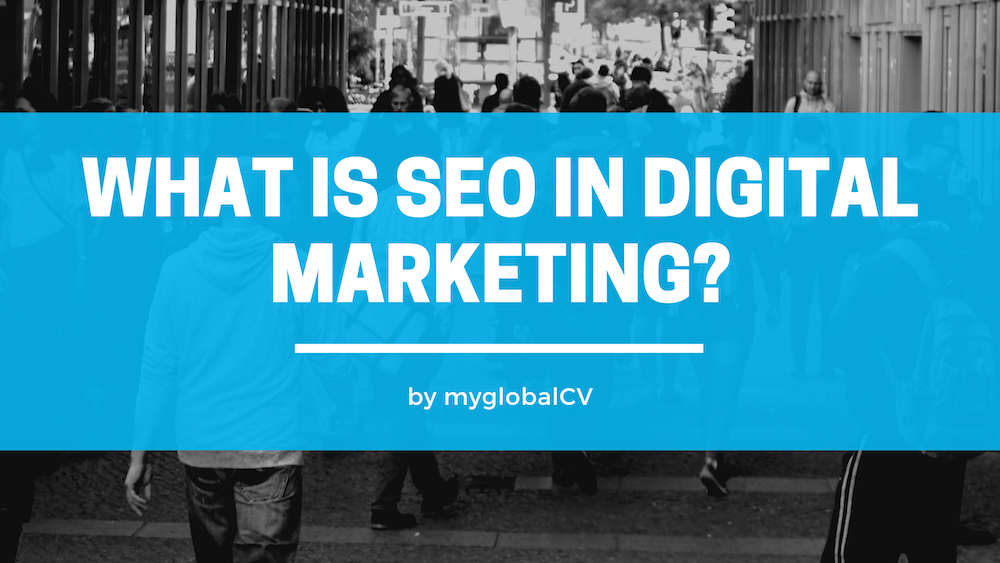What is social media marketing?
Social media marketing is a form of digital marketing that utilizes social media platforms to promote products, services, or brands. It is a cost-effective way for businesses to reach a larger audience, increase brand awareness, and drive more sales. Social media marketing is the process of creating, publishing, and distributing content on social media platforms in order to achieve specific marketing objectives. The objective can be anything from increasing website traffic, to generating leads, to boosting sales, or building brand loyalty.
The process of social media marketing includes creating a social media presence on different platforms, implementing various strategies, and engaging with the audience. A social media presence includes creating a profile, publishing regular content, and interacting with the audience. The content can be in the form of text, images, videos, or live streams, and should be relevant to the target audience and align with the overall marketing strategy.
Social media marketing strategies include advertising, influencer marketing, content marketing, and more. Advertising on social media platforms allows businesses to target specific demographics, interests, and behaviors with their ads, helping to increase visibility and drive more traffic to the website. Influencer marketing involves partnering with social media influencers to promote products or services to their followers. Content marketing involves creating and sharing valuable content to attract and engage with the target audience.
Engaging with the audience on social media platforms is also an important aspect of social media marketing, as it helps to build relationships and trust with the target audience. This can include responding to comments, messages, and reviews, as well as sharing user-generated content. Social media marketing also provides businesses with valuable insights and analytics, which can be used to track the performance of different campaigns and strategies, and make adjustments as needed.
Importance of social media marketing
Social media has become an integral part of people’s daily lives, making it a crucial channel for businesses to reach and engage with their target audience. With over 3 billion people using social media worldwide, it provides a vast audience for businesses to market their products or services to. Social media marketing also allows for highly targeted advertising, as businesses can reach specific demographics, interests, and behaviors.
Additionally, social media marketing allows for two-way communication between businesses and their customers, which helps to build stronger relationships and trust. By engaging with customers on social media, businesses can also gather valuable feedback and insights, which can be used to improve products or services.
Social media marketing also provides businesses with the opportunity to build their brand and reputation. By consistently publishing valuable and relevant content, businesses can establish themselves as thought leaders in their industry, and attract a loyal following.
Finally, social media marketing is cost-effective compared to traditional forms of marketing, as it can be done with a relatively small budget. Businesses can also track the ROI of their social media efforts, allowing them to measure the success of their campaigns and make adjustments as needed.
Types of social media marketing
There are several different types of social media marketing, each with their own specific goals and methods. Some of the most common types include:
· Advertising: Social media advertising allows businesses to target specific demographics, interests, and behaviors with their ads. This helps to increase visibility and drive more traffic to the website.
· Influencer marketing: This involves partnering with social media influencers to promote products or services to their followers.
· Content marketing: This involves creating and sharing valuable content to attract and engage with the target audience.
· Live streaming: This involves broadcasting live video content on social media platforms, such as Facebook Live or Instagram Live.
· User-generated content: This involves encouraging customers to share their experiences and feedback about a product or service on social media.
· Community building: This involves creating and fostering a community on social media platforms, through engagement and interaction with the audience.
· Influencer Outreach: This is when a brand reaches out to an influencer to collaborate, this can be through a sponsored post, product review, or event collaboration.
· Chatbots: This is the use of AI-powered chatbots to interact with customers on social media platforms, providing quick and efficient customer service.
· Influencer Marketing: This is when a brand partners with an influencer to promote their product or service to the influencer’s followers.
· Social Media Management: This is the process of managing and optimizing a brand’s social media presence, including creating and publishing content, engaging with the audience, and analyzing metrics.
Benefits of social media marketing
· Increased brand awareness: Social media marketing helps to increase the visibility of a business and its products or services, which can lead to increased brand awareness and recognition.
· Increased website traffic: Social media marketing can drive more traffic to a website, through the use of advertising, content marketing, and influencer marketing.
· Increased sales: Social media marketing can also lead to increased sales, by driving more traffic to the website and increasing brand awareness.
· Increased customer engagement: Social media marketing allows businesses to engage with their customers in real-time, which can help to build stronger relationships and trust.
· Improved customer service: Social media platforms provide an easy and efficient way for businesses to respond to customer questions and concerns, which can improve customer satisfaction.
· Cost-effective: Compared to traditional forms of marketing, social media marketing can be done with a relatively small budget.
· Valuable insights and analytics: Social media platforms provide valuable insights and analytics, which can be used to track the performance of different campaigns and strategies, and make adjustments as needed.
· Increased lead generation: Social media marketing can help businesses to generate leads, by sharing valuable and relevant content, and engaging with the audience.
· Increased brand loyalty: By consistently publishing valuable and relevant content, businesses can establish themselves as thought leaders in their industry, and attract a loyal following.
· Increased reach: With over 3 billion people using social media worldwide, it provides a vast audience for businesses to market their products or services to.
Social media marketing tools
· Hootsuite: A social media management platform that allows businesses to schedule and publish content, track metrics, and engage with their audience.
· Canva: A graphic design tool that makes it easy to create visually appealing social media graphics.
· Buzzsumo: A tool that allows businesses to track the performance of their content, as well as their competitors’ content, on social media.
· Sprout Social: A social media management platform that allows businesses to schedule and publish content, track metrics, and engage with their audience.
· Google Analytics: A tool that allows businesses to track website traffic and the performance of their social media campaigns.
· Buffer: A social media management platform that allows businesses to schedule and publish content, track metrics, and engage with their audience.
· CoSchedule: A social media management platform that allows businesses to schedule and publish content, track metrics, and engage with their audience.
· IFTTT: A tool that allows businesses to automate various tasks and processes, such as publishing content on multiple social media platforms.
What is social media marketing strategy?
Developing a solid social media marketing strategy is crucial for any business looking to promote their brand, products or services on social media platforms. A social media marketing strategy is a plan that outlines how a business will use social media to achieve specific marketing goals.
A social media marketing strategy should be based on the specific goals of the business. For example, a business that wants to increase its brand awareness would have a different strategy than a business that wants to drive sales. The strategy should also take into account the target audience, the channels that will be used, and the resources that will be allocated to the social media marketing efforts.
The process of creating a social media marketing strategy usually starts with an assessment of the current social media presence of the business. This includes analyzing the current follower base, engagement levels, and the type of content that is currently being shared. Once this information is gathered, businesses can start to identify areas where they can improve their social media presence.
The next step is to set clear and measurable goals. These goals should be aligned with the overall business objectives and should be specific, measurable, attainable, relevant, and time-bound (SMART). Some examples of social media marketing goals include increasing website traffic, boosting brand awareness, and generating leads.
Once the goals are set, businesses can start to research their target audience. This includes identifying the demographics, interests, and behaviors of the target audience. This information can be used to create a buyer persona, which is a detailed description of the ideal customer.
Once the target audience is identified, businesses can start to research the channels that will be used to reach that audience. This includes selecting the social media platforms that are most popular with the target audience, as well as identifying any niche platforms that may be relevant. For example, a fashion brand may choose to focus on Instagram and Pinterest, while a B2B company may focus on LinkedIn.
The next step is to create a content strategy. This includes identifying the type of content that will be shared, as well as the frequency and schedule of the content. This should be based on the goals and target audience of the business. For example, a business that wants to increase brand awareness may focus on creating visually appealing content that tells a story, while a business that wants to drive sales may focus on creating product-focused content.
Finally, businesses need to develop a plan for engagement and customer service. This includes identifying the team members who will be responsible for social media, creating a social media calendar, and establishing guidelines for responding to comments and messages.
What is social media marketing agency?
A social media marketing agency is a company that specializes in creating and implementing social media marketing campaigns for other businesses. These agencies employ a team of experts who have knowledge and experience in social media marketing, and they can offer a range of services, including creating a social media marketing strategy, managing social media accounts, running ads, and analyzing and reporting on the results.
Social media marketing agencies can be a valuable resource for businesses that do not have the time, resources, or expertise to handle their social media marketing efforts in-house. They can also provide valuable insights and expertise that can help businesses improve their social media presence and achieve their marketing goals.
When choosing a social media marketing agency, it’s important to consider the agency’s experience and track record, as well as the services they offer and their pricing. It’s also important to make sure that the agency’s values and approach align with those of the business.
What is a social media marketing manager?
A social media marketing manager is a professional responsible for creating, managing, and implementing a company’s social media strategy. They are in charge of developing and executing campaigns, creating and publishing content, and analyzing and reporting on the results of their efforts.
They work closely with other members of the marketing team, as well as other departments such as sales and customer service, to ensure that the company’s social media presence is aligned with its overall business goals.
A social media marketing manager typically has a background in marketing, communications, or a related field, and should possess a strong understanding of the different social media platforms, as well as the tools and techniques used for social media marketing. They should also have excellent written and verbal communication skills, as well as the ability to analyze data and make strategic decisions based on their findings.
What is the best way to do social media marketing?
There is no one-size-fits-all answer to this question, as the best way to do social media marketing will depend on a number of factors including the industry, target audience, and goals of the business. However, there are a few key elements that are commonly considered to be essential for a successful social media marketing campaign.
One of the most important things to consider is the creation of high-quality, engaging content. This can include blog posts, videos, infographics, and other types of media that are tailored to the interests of the target audience. Additionally, it’s important to have a clear understanding of the different social media platforms, and to use them in ways that are appropriate for the business and its goals.
It’s also important to have a clear and consistent brand voice across all social media platforms. This includes using the same tone, imagery, and messaging across all channels to ensure that the business is easily recognizable and that its message is consistent.
Another important element is to regularly engage with the target audience by responding to comments, messages, and reviews. This can help to build trust and a strong relationship with the target audience.
How to begin social media marketing?
Starting a social media marketing campaign can seem daunting, but with the right approach, it can be relatively straightforward. The first step is to conduct research on the target audience, including their demographics, interests, and behavior. This will help to identify the most appropriate social media platforms for the business.
Next, create a social media strategy that outlines the specific goals and objectives of the campaign, as well as the tactics and tools that will be used to achieve them. This should include a content calendar that outlines the types of content that will be published, as well as when and where it will be published.
Once the strategy is in place, set up social media accounts on the appropriate platforms, and begin creating and publishing high-quality, engaging content. It’s also important to engage with the target audience by responding to comments, messages, and reviews, as well as monitoring analytics to track the success of the campaign.
Finally, it’s important to regularly review and adjust the social media strategy as needed, based on the results of the campaign and any changes in the target audience or social media landscape.
In conclusion,
Social media marketing is an essential component of any business’s marketing strategy. It allows businesses to connect with their target audience, increase brand awareness, and drive sales. There are various types of social media marketing, including organic and paid social media marketing. The benefits of social media marketing are numerous, and there are various tools available to businesses to help them automate and streamline their efforts.
Creating a social media marketing strategy and regularly reviewing and adjusting it is crucial for businesses to achieve their marketing goals. Social media marketing agencies and managers can be beneficial for businesses that do not have the resources or expertise to handle their social media marketing efforts in-house. With the right approach, social media marketing can be a powerful tool for businesses of all sizes.



